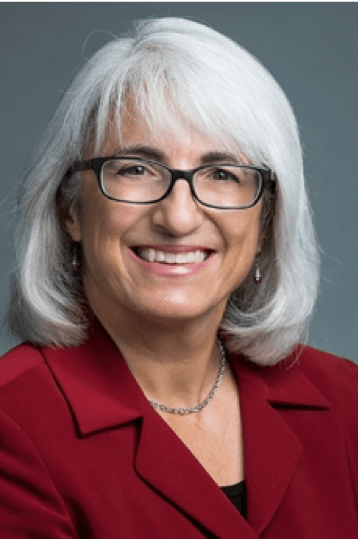I recently completed my first project-based learning class under the guidance of Professor Gregory Rockett, Lecturer in Management and Tourism Studies. Like any great narrative arc, a semester-long project has its own version of a hero’s journey; albeit the adversaries are usually self created and the internet does not always feel like an adventurous new land. Ultimately, there is treasure at the end and I have gathered a few of the most momentous findings below, in hopes of easing your journey, even a little.
Marriott International’s Senior Director of Global Enterprise Partnerships, Maia Daniels, tasked my Hospitality Market Analysis class with a seemingly straightforward project: Locate wellness trends in assigned regions, highlight key supply and demand elements, and ultimately identify co-branding opportunities between Marriott International and the host communities. Yes, the prompt seemed straightforward, until we actually started the project. Turns out we were on the cutting edge of wellness tourism, a new market that was just beginning to garner attention in academia and the hospitality sector. With a lot of effort (and adding Professor Rockett to speed dial) we pulled it off, but dear reader, there are definitely some things I know now that I really wish I would have known then.
How to Begin
I like to use Joseph Campbell's euphemism “The Call to Adventure'' at the outset of any new project. A project is so similar to a long voyage: who you wind up being is somehow permanently altered through your adventures, shifting your perceptions and biases, though never quite in the way anticipated. Perhaps subconsciously we, as students, understand this on a molecular level, which explains why beginning is often the hardest part and often left untill the last moment.
To truly begin, you will first need an endpoint and to get there you will have to understand the assignment. I know this sounds patronizing, but follow with me. Read the assignment carefully, then re-read it, then re-read it again. Know the directions so well you can recite them in your sleep and then re-read the words one more time. This is your lighthouse when you are so far out on a research wave, that you cannot even remember how or why you got to this obscure article about tourism destinations in Mongolia and the supply and demand for yak milk. Believe me, I’ve been there. As any good explorer will tell you, one has to be completely lost to find new terra, and if you are conducting your research properly, this will certainly happen to you. That is why it is pivotal that you understand exactly what you are looking for. If you cannot sum up your research topic in one sentence, you are probably looking for the wrong thing.
In short, to understand you must be utterly confused. Step 2 of starting is then to ask as many questions as possible to get ultimate clarity, not only on the end goal, but the path to get there. And don’t be ashamed to ask too many questions, and ask everyone: your classmates, other team leaders, the professor, a higher power (depending on the day, things can easily get out of hand). If you think about it, your class is probably being asked to do this real life research because no one else is doing it. This means the client probably does not actually know what they want. It is now your job to figure this out.
How to Sustain Momentum
Hey. Team leaders, overachievers, and 4.0s, I’m looking at you: You cannot do this project successfully alone. It is just not possible. A huge aspect of this project is allowing others to also control the finished product. You need to learn how to rely on others. I recommend spending a decent amount of time getting to know your teammates; have a happy hour, or coffee talks in the morning. The better you know your teammates’ strengths and weaknesses, the better you will be able to delegate tasks to the most capable person; not everyone on your team will be good at everything, but I promise they are all uniquely great at something. Not to mention, camaraderie goes a long way, especially during stressful times. The better team synergy you have, the better the entire process will go. And team synergy does not just happen; it is not a miracle. Synergy is built by those in the team and needs to be maintained by the team. This takes a lot of dedication, but the benefits of overcoming differences will teach you more than if you did this project yourself in anger (because another student did not create the graphs in the specific color, exactly the way you wanted). Working in a team sometimes means letting go of your own expectations and letting other students present work in their own voices in their own way. This does not mean stop caring, or care less, this means allow everyone to care.
Knowing When to Ask for Help
Once all the parts of your team are whirring and you are well on your way to the lighthouse through the monster filled sea, there will be inevitable moments of despair and disillusionment. This is when you ask for support from your team, first. Another reason for creating team synergy early on in the process: your team will be the closest to your research topic besides yourself and therefore are more likely to find a solution. If the team is unable to solve the problem together, then ask the professor to help, but efficiency is key here. Just like when you needed to clearly form your research question for the client, you also need to sit with your current setbacks and get as specific as possible. Is the team missing deadlines, which is causing you to panic because you feel you may be running behind? Ask the professor to check your progress. Are you unsure of the validity of your research claims or the supporting theoretical framework? Ask the professor to guide you towards solidifying your path forward. Asking is not always easy, feelings of inadequacies often tell us we should be 100% self-sufficient, all the time. Know that voice is not your friend, and that asking for help at the right time can resteer your project out of turmoil effectively and efficiently, with the least amount of injury to your team goal.
The Grim Specter of “Perfection”
A professor once told me: “Done is better than perfect.” For years I had that phrase hanging above my work area to remind me of this simple truth. In short, if you hide your work from your team and your professor until the end of the semester, you will fail your client; you will not reach the lighthouse; you will not find the treasure. I strongly recommend you use a live google doc where everyone can see your progress in real time, not only when it is done and polished. I have gotten a lot of pushback from team members on this. It is scary to let people into your rough draft and your “process” of research and writing, but this is the only way to hold accountability for each and every team member, and the only way to properly monitor your progress. Remember, perfection is not the goal. The goal is to create a document that the client will use, a document that will better whatever research problem you are given. You are a student of this topic, not a master of this topic; be kind to yourself. Time will always be your enemy, and if a contradiction or mistake is not caught until the very end of the semester, there will be no time to find a solution. If you are open through the process and share your work, you will be so much closer to perfection than if only your eyes were editors.
Overcoming the Monolith “Procrastination”
Honest truth about myself, I love to languish in the warmth of procrastination. Cat videos, cat dancing videos, babies eating sour things, dog-shaming, cats purring, etc. etc. I had to delete Tik Tok off my phone within 2 days; it was just too much fun. To combat my love for naps and waiting for tomorrow, I have come up with a handful of tricks to stay motivated:
- I work in short bursts: I set a timer for ten minutes and make myself research, write or edit until the timer goes off. Then I am allowed a five minute break. Then back to ten minutes of work, then a five minute break. After about a half hour of this, I wind up working past my ten minute timer and have made it past the difficult part of starting.
- I give myself a day off: Burnout is a real thing, especially with semester-long projects. If you are anything like me, you may experience feelings of guilt for stepping away from the tasks at hand. I am giving you permission: it is important to step away. Usually the problem becomes so much easier once I gain some distance; the same will happen with research.
- I reward myself often: It may be a cookie, or a glass of wine, or a long phone call with a friend. Every milestone achieved gets a moment of respite and a pat on the back. I also recommend rewarding your team when you hit milestones together. Sending $5 for coffee via Venmo or writing a simple, yet meaningful “good job” text can create a moment of celebration and keep up motivation for both yourself and for your team.
- Lots and lots of check-ins: As discussed, transparency with your team is vital to your overall success. Check-in with your team and often; they can act as accountability partners that continue to push you forward. You do not want to let them down, right? Trust that they do not want to let you down either, especially if everyone feels like “we’re all in it together!”
The Treasure of Completion
Working in a team on a group project is hard. Working in a team on a semester-long project for a real life client is harder. Projects like the one I completed stretched my academic bandwidth further than I thought possible. I wanted to give up, I wanted to drop out, I laughed, I cried. That is why the explorer metaphor works so well. When you care, projects like this become epics in our minds; we become our own Tolstoy. But just like the heroes in so many journeys, the voyage is always worth it, in the end. Through the process of this type of class, I have learned how to navigate my own emotions in a more professional way, I learned how to lead a team more effectively. I also have learned how to let new leaders emerge when it is time. I learned how to let go of control and admit when I needed help. These are all really big steps for me, both professionally and personally.
Our story ends with a happy client and an end-product I, and my team, can be proud of. As much as I was relieved, I was more surprised at my own tenacity and perseverance. After a couple days' rest, surprisingly, I just wanted to do the whole process all over again. Not because I am a masochist, but because there is little else that has helped me excel so quickly, both inwardly and in a community of peers. So if you find yourself reading this in the midst of a project fueled panic; know that if I did it, you can do it. Know that I’m proud of you for trying. Don’t give up, there is gold within your reach.
Melina Economos is a Master of Tourism Administration '22 candidate focusing her studies on Hospitality Management and Leadership.








